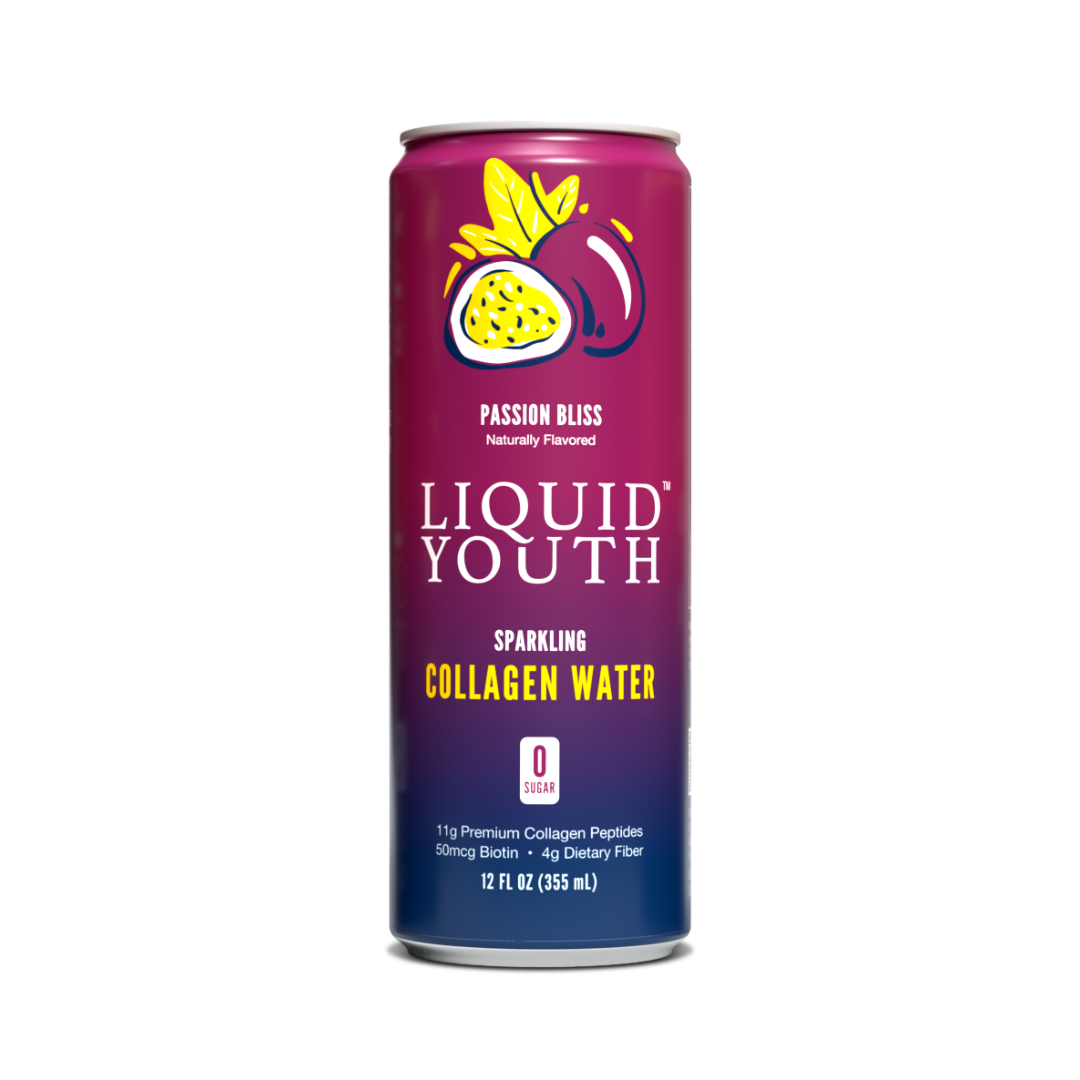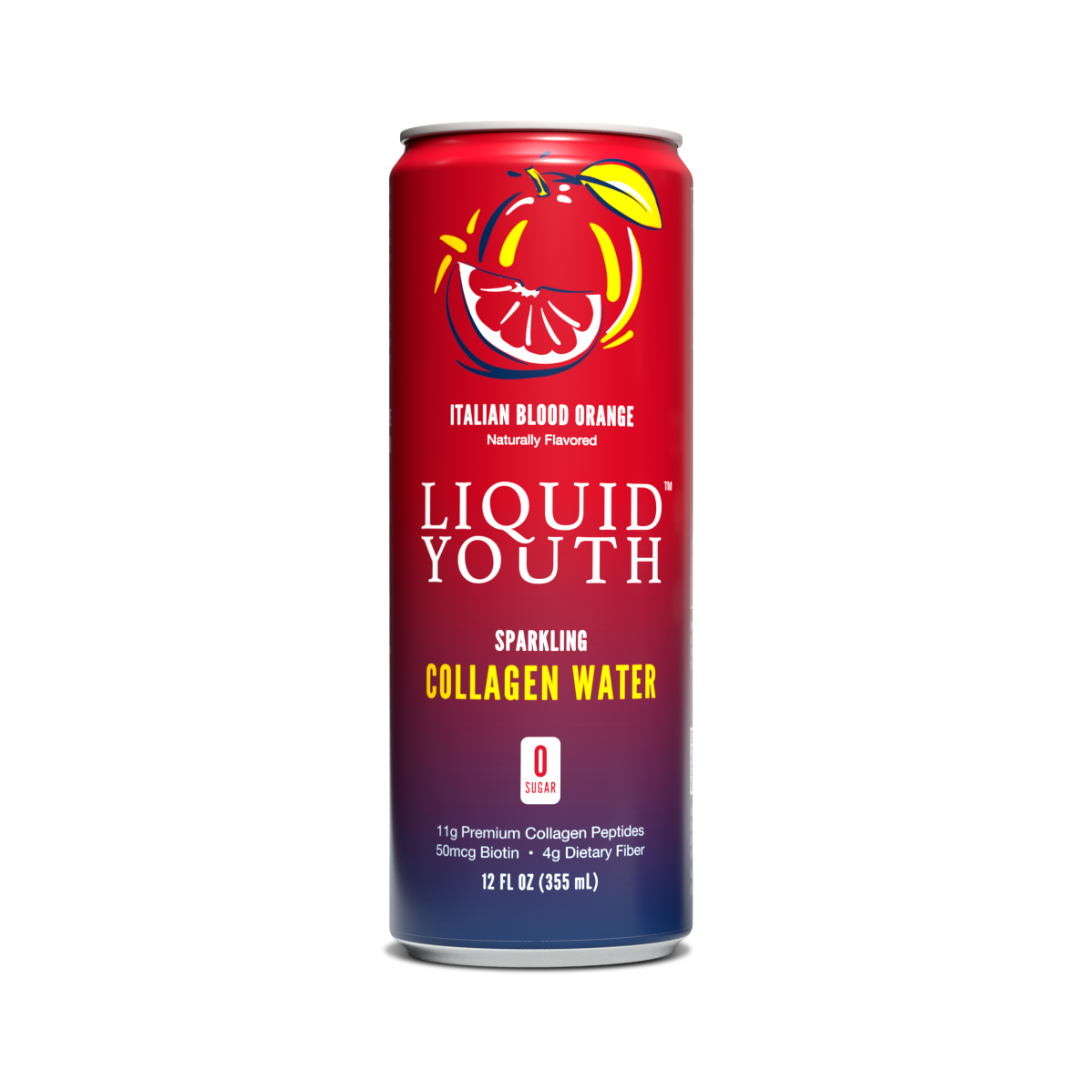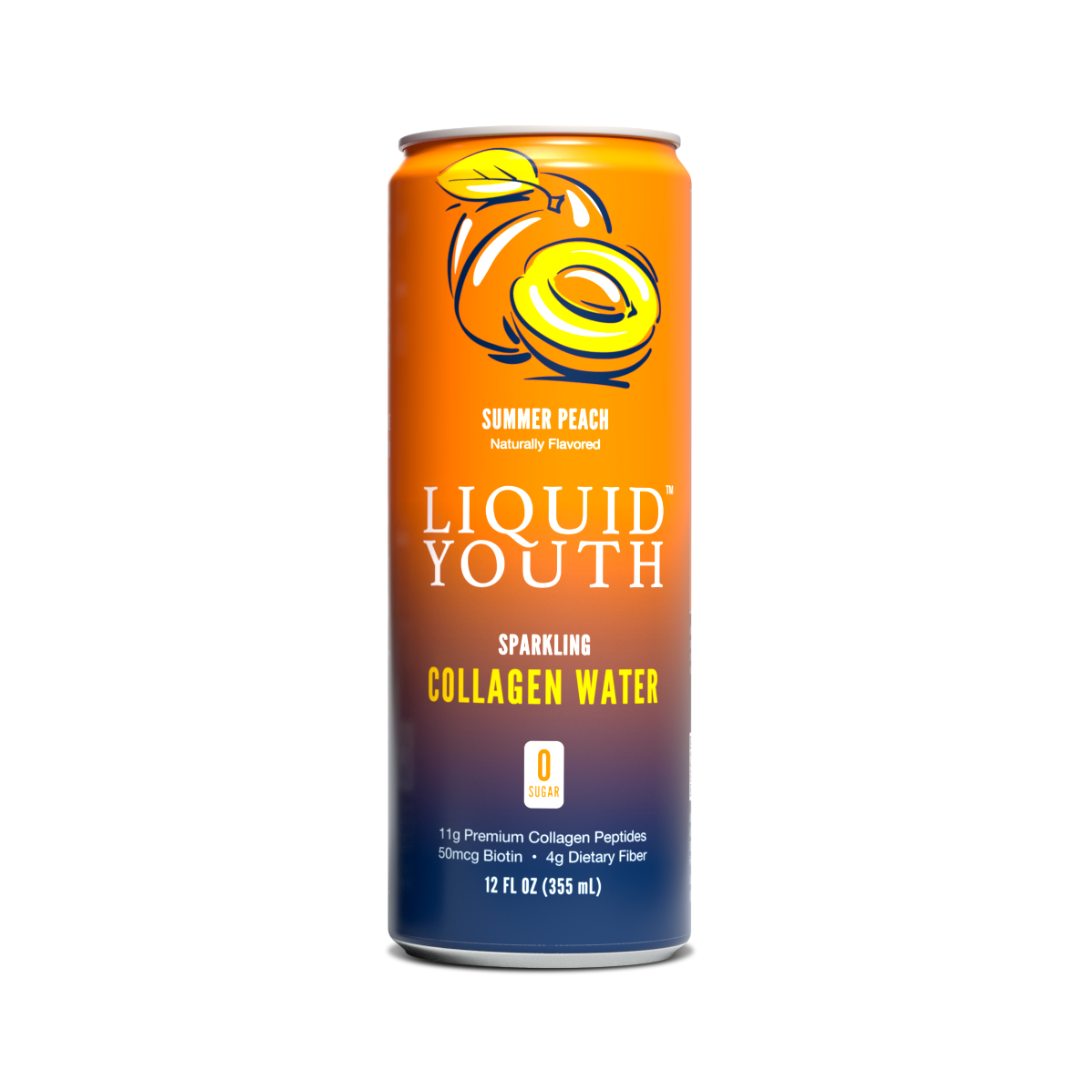6 Common Collagen Myths: Separating Facts from Fiction

Collagen supplements have surged in popularity due to their potential benefits for skin health, joint function, and overall well-being. However, many myths about collagen also exist. As the most abundant protein in the human body, collagen provides essential structure and strength to the skin, bones, tendons, and ligaments. Our natural collagen production declines as we age, resulting in visible signs of aging, such as wrinkles, sagging skin, and joint pain. Despite the proven benefits of collagen supplements, numerous myths about their efficacy and safety persist, leading to widespread consumer misinformation. We'll debunk the common collagen myths by showing scientific proof of its benefits.
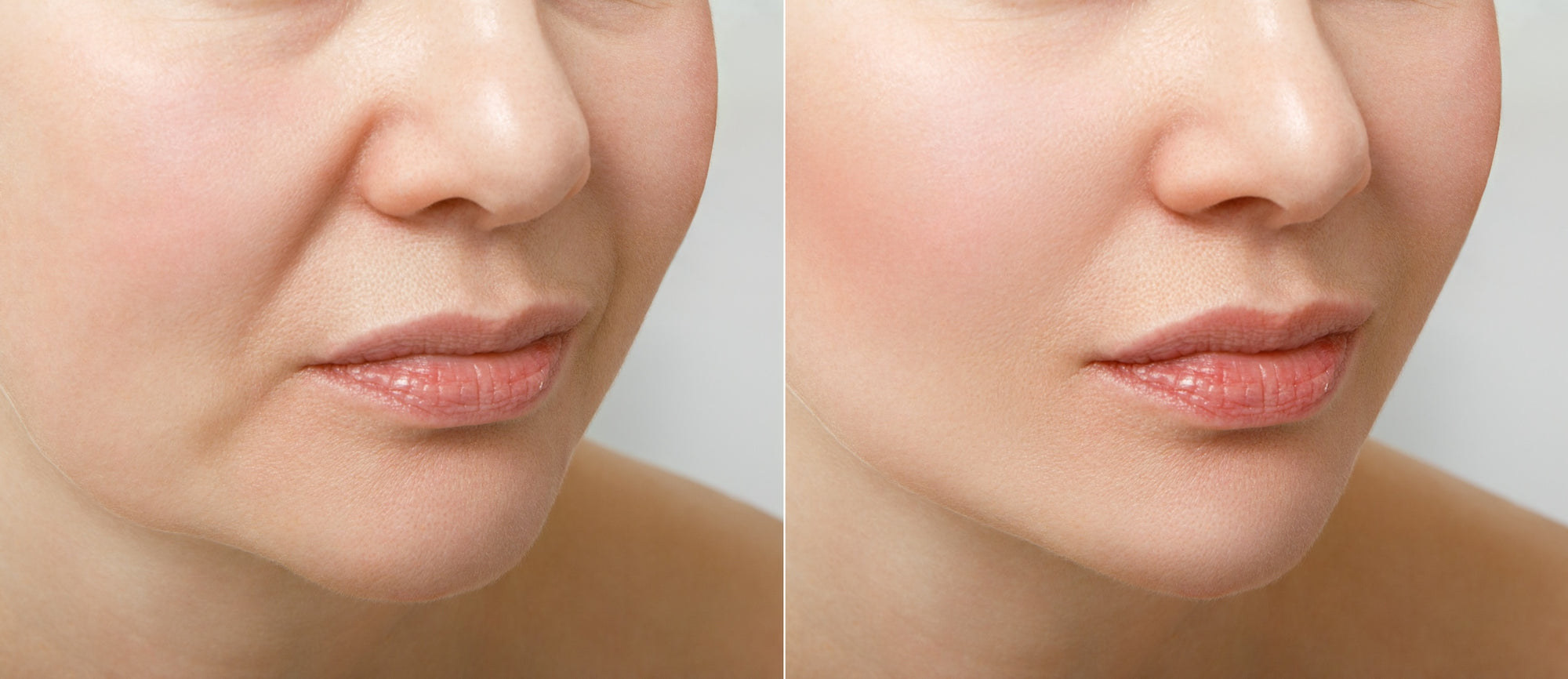
Collagen Myth 1: Collagen Supplements Are Not Effectively Absorbed for Skin Health
One of the most common myths about collagen is that supplements don't work. Critics argue that the digestive process breaks down collagen peptides, making them ineffective. However, research shows collagen peptides are easily absorbed and stimulate collagen production.
- A 2023 study demonstrated that collagen peptides are absorbed through the intestinal tract and accumulate in the skin, where they increase collagen density and improve skin elasticity (Chen et al., 2023).
- A randomized, double-blind, placebo-controlled trial found that women who consumed collagen supplements experienced a significant reduction in skin wrinkles compared to the placebo group (Nomoto & Iizaka, 2020).
- A literature review found that collagen peptides supplementation significantly improved skin hydration elasticity and reduced wrinkles compared to a placebo, supporting the claim that collagen can positively affect skin aging (de Miranda et al., 2021).
- A 2022 study showed that hydrolyzed collagen supplements could delay and improve signs of skin aging by decreasing facial wrinkles and improving skin hydration and elasticity (Żyga, 2022).
Fact Check: Collagen peptides are well absorbed and can greatly benefit skin health. Scientific research supports their bioavailability and ability to improve skin elasticity and hydration while reducing wrinkles. Products like Liquid Youth's Collagen Elixir, which uses marine collagen peptides and liposomal technology, offer enhanced bioavailability and optimal results.
Collagen Myth 2: All Collagen Supplements Are the Same
Another common myth about collagen is that all collagen supplements are alike. In reality, the methods used to process collagen can affect its bioavailability. Hydrolyzed collagen, or collagen peptides, is processed into smaller, more easily absorbed molecules.
- Studies have shown that collagen peptides have higher bioavailability and can more effectively stimulate collagen production in the body. (Chen et al. 2023)
- Traditional collagen retains its original structure and is thought to support immune function and reduce inflammation.(Martínez-Puig et al., 2023)
Fact Check: Collagen peptides offer better absorption and effectiveness than traditional collagen. The processing method and collagen source play a crucial role in its bioavailability and benefits. Liquid Youth products use premium collagen peptides for improved absorption and enhanced results.
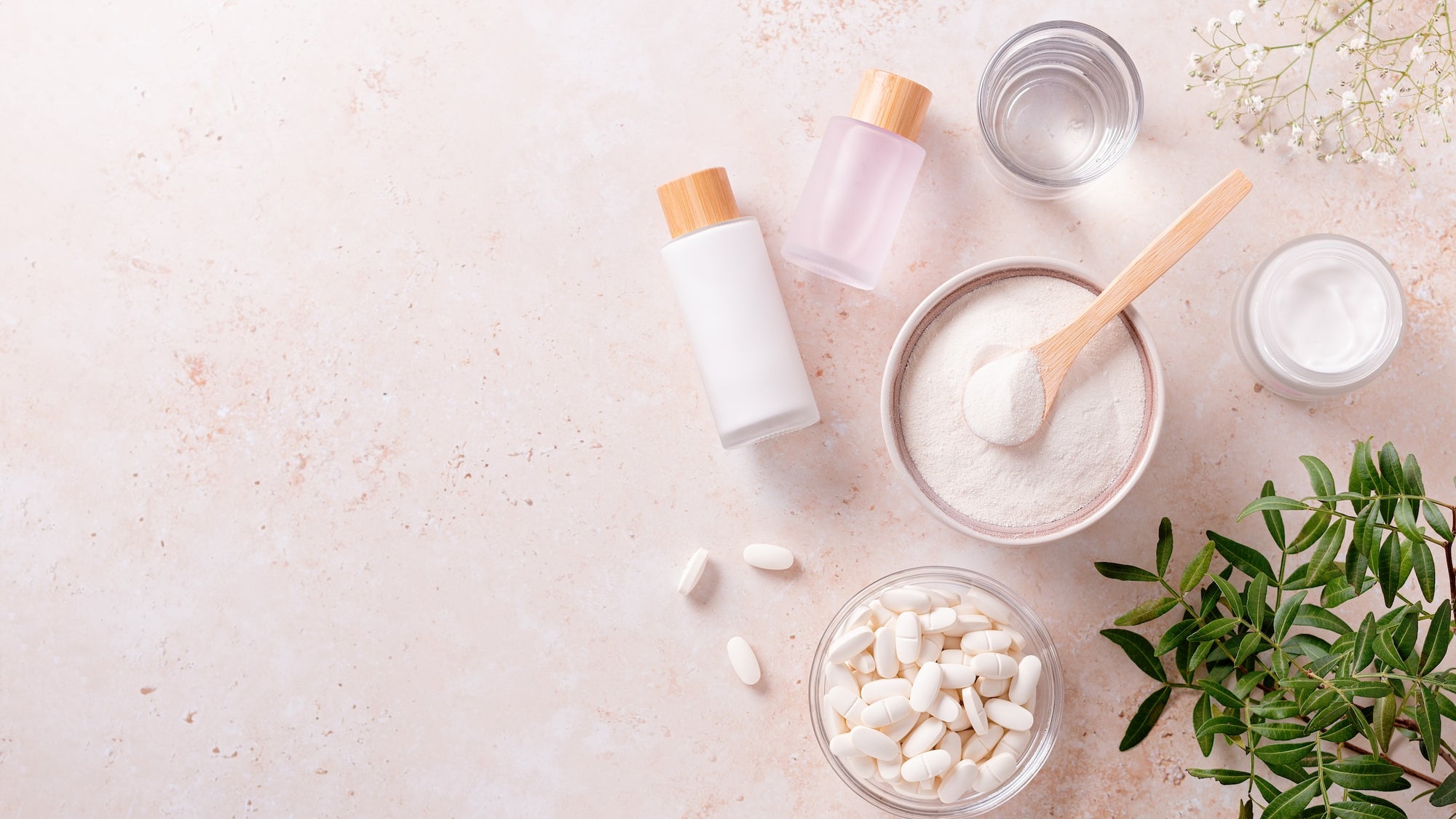
Collagen Myth 3: There's No Difference Between Bovine and Marine Collagen
Collagen supplements are derived from various sources, but bovine (cow) and marine (fish) are the most common. Each source offers different benefits and levels of bioavailability. While there are at least 16 types of collagen, most supplements concentrate on types I and III.Type I collagen is the most abundant in the human body, making up about 90% of the body's collagen. It's found in the skin, tendons, and bones, where it maintains skin elasticity and strength. Type III collagen, the second most abundant, is prevalent in the skin and blood vessels, supporting skin structure and elasticity.
- Marine collagen is known for its high bioavailability and is often preferred for skin health due to its similarity to human collagen. Marine collagens contain primarily type I collagen (León-López et al., 2019).
- Bovine collagen is rich in types I and III collagen, making it suitable for overall skin, hair, joint, and nail health (Sadigursky et al., 2022).
Fact Check: Marine collagen peptides are excellent for improving skin health and ensuring high absorption, while bovine collagen peptides provide broader benefits for skin, joints, and overall tissue health. Liquid Youth offers a variety of collagen peptide products, including marine collagen elixirs and grass-fed bovine collagen powders, ensuring top quality to meet your specific needs.
Collagen Myth 4: Collagen Supplements Are Unsafe
Many people have safety concerns regarding collagen supplements. A prevalent myth suggests that these supplements are unsafe. However, extensive research suggests that hydrolyzed collagen is safe to consume, with no significant adverse effects reported.
- The FDA classifies collagen as Generally Recognized As Safe (GRAS) for food products. This classification indicates that collagen does not pose a risk to consumers when used as intended.
- The EFSA has reviewed and confirmed the safety of hydrolyzed collagen for use in dietary supplements (EFSA, 2011).
- A study evaluating the long-term use of hydrolyzed collagen found it to be safe and effective in reducing skin aging signs (Żyga, 2022).
Some people worry about allergic reactions to collagen supplements. Although these reactions are uncommon, they can happen, especially in individuals allergic to the collagen source, such as fish or bovine. Always verify the collagen source in the supplement and seek advice from a healthcare professional if you have known allergies. Fact Check: There's no scientific evidence supporting the myth that collagen supplements are unsafe. Regulatory bodies such as the FDA and EFSA have deemed collagen supplements safe for consumption. Several studies also back up their safety and effectiveness. Liquid Youth™ products are meticulously crafted to be non-GMO, gluten-free, dairy-free, and devoid of artificial additives, providing consumers with the purest and safest ingredients for optimal health.

Collagen Myth 5: Collagen Supplements Only Benefit the Skin
Among the many myths about collagen is that it's solely for skin and hair. Although it's commonly linked to skin benefits, collagen also plays a significant role in promoting joint health and other areas of well-being.
- Studies have shown that collagen supplements can improve joint flexibility and reduce pain in osteoarthritis patients, making them beneficial for joint health (Khatri et al., 2021).
- A 2022 study demonstrated the clinical efficacy of type II collagen in improving joint health, flexibility, and mobility (Kumar et al., 2023).
- A 2021 study found that collagen hydrolysates derived from marine sources effectively treat early osteoarthritis, highlighting the joint health benefits of collagen supplements (Eckert et al., 2021).
Fact Check: The belief that collagen supplements only help the skin is false. Scientific studies show that collagen supplements provide numerous health benefits, including improving joint health, boosting bone density, and supporting gut health. Products like Liquid Youth™ Collagen Elixir, which blends marine collagen peptides with hyaluronic acid, vitamin C, and blackberry extract, offer a holistic health boost, benefiting the skin, joints, and overall vitality.
Collagen Myth 6: Collagen Supplements Provide Immediate Results
Another common misconception about collagen supplements is that they deliver instant results. However, in reality, the benefits of collagen supplementation typically require regular and prolonged use over time.
- Studies have shown that noticeable improvements in skin elasticity, hydration, and reduction of wrinkles typically occur after several weeks to months of regular intake (Żyga, 2022; Miranda, Weimer, & Rossi, 2021).
- After several months of consistent supplementation with type II collagen, joint health improvements and pain and stiffness reduction in osteoarthritis patients were observed (Kumar et al., 2023).
Fact Check: The idea that collagen supplements offer immediate results has no scientific backing. Improvement in skin health, joint function, muscle strength, and bone density usually becomes evident after consistent use over weeks to months. For the best outcome, make Liquid Youth™ collagen products part of your daily regimen to enjoy steady and lasting benefits for your skin, joints, and overall well-being.
For Optimal Health and Wellness, Try Liquid Youth Collagen Supplements
Although the myths about collagen are far and wide, scientific evidence proves they're beneficial and safe in promoting skin health and joint function. However, the outcome may differ based on the collagen type and source, and long-term use is often required to see significant results. Liquid Youth™ offers a variety of premium collagen products that cater to different health needs, ensuring high quality, safety, and efficacy for your wellness journey.
Featured Products
References
Chen, L., Lv, Y., Xu, F., & Zhong, F. (2023). The effect of oral supplements containing collagen peptides rich in X-Hyp or X-Hyp-Gly compared with normal collagen hydrolysates on skin elasticity and collagen holes: a randomised, double-blind clinical study. Food & function. de Miranda, R. B., Weimer, P., & Rossi, R. C. (2021). Effects of hydrolyzed collagen supplementation on skin aging: a systematic review and meta-analysis. Int J Dermatol, 60(12), 1449-1461. https://doi.org/10.1111/ijd.15518
Eckert, T., Jährling-Butkus, M., Louton, H., Burg-Roderfeld, M., Zhang, R., Zhang, N., Hesse, K., Petridis, A. K., Kožár, T., Steinmeyer, J., Schauer, R., Engelhard, P., Kozarova, A., Hudson, J. W., & Siebert, H.-C. (2021). Efficacy of Chondroprotective Food Supplements Based on Collagen Hydrolysate and Compounds Isolated from Marine Organisms. Marine Drugs, 19. Khatri, M., Naughton, R. J., Clifford, T., Harper, L. D., & Corr, L. (2021). The effects of collagen peptide supplementation on body composition, collagen synthesis, and recovery from joint injury and exercise: a systematic review. Amino Acids, 53(10), 1493-1506. https://doi.org/10.1007/s00726-021-03072-x
Kumar, P., Bansal, P., Rajnish, R. K., Sharma, S., Dhillon, M. S., Patel, S., & Kumar, V. (2023). Efficacy of undenatured collagen in knee osteoarthritis: review of the literature with limited meta-analysis. American journal of translational research, 15 9, 5545-5555. León-López, A., Morales-Peñaloza, A., Martínez-Juárez, V. M., Vargas-Torres, A., Zeugolis, D. I., & Aguirre-Álvarez, G. (2019). Hydrolyzed Collagen-Sources and Applications. Molecules, 24(22). https://doi.org/10.3390/molecules24224031
Martínez-Puig, D., Costa-Larrión, E., Rubio-Rodríguez, N., & Gálvez-Martín, P. (2023). Collagen Supplementation for Joint Health: The Link between Composition and Scientific Knowledge. Nutrients, 15. Nomoto, T., & Iizaka, S. (2020). Effect of an Oral Nutrition Supplement Containing Collagen Peptides on Stratum Corneum Hydration and Skin Elasticity in Hospitalized Older Adults: A Multicenter Open-label Randomized Controlled Study. Advances in Skin & Wound Care, 33, 186 - 191. Sadigursky, D., Magnavita, V. F. S., Sá, C. K. C. d., Monteiro, H. D. S., Braghiroli, O. F. M., & Matos, M. A. A. (2022). UNDENATURED COLLAGEN TYPE II FOR THE TREATMENT OF OSTEOARTHRITIS OF THE KNEE. Acta Ortopedica Brasileira, 30. Żyga, J. (2022). Oral collagen supplements intake on improving skin structure and function. Journal of Education, Health and Sport.

